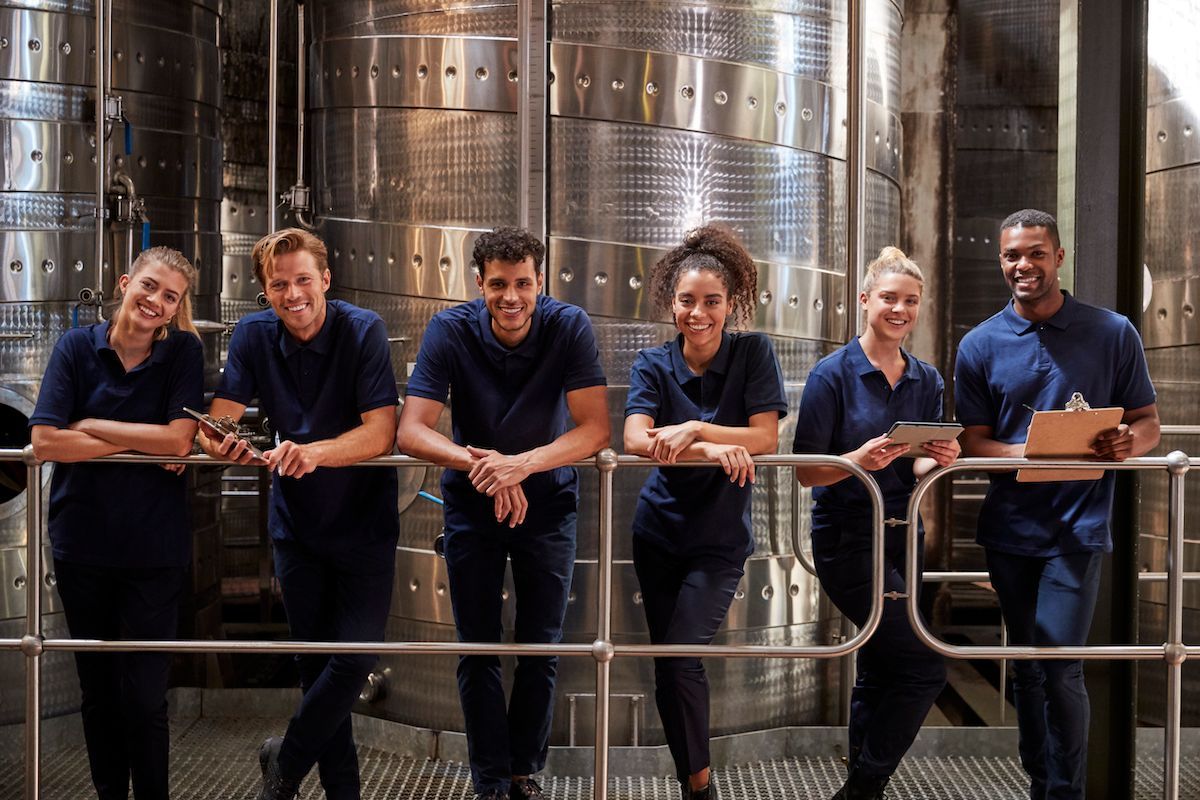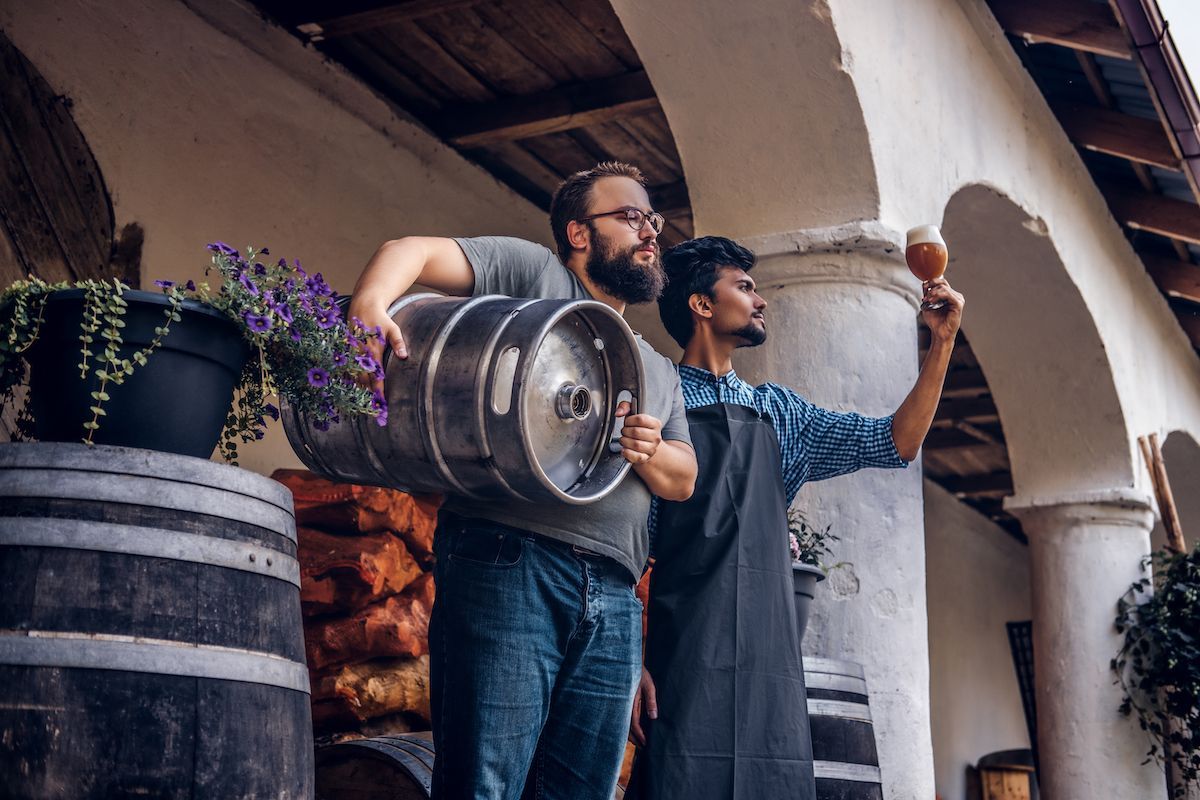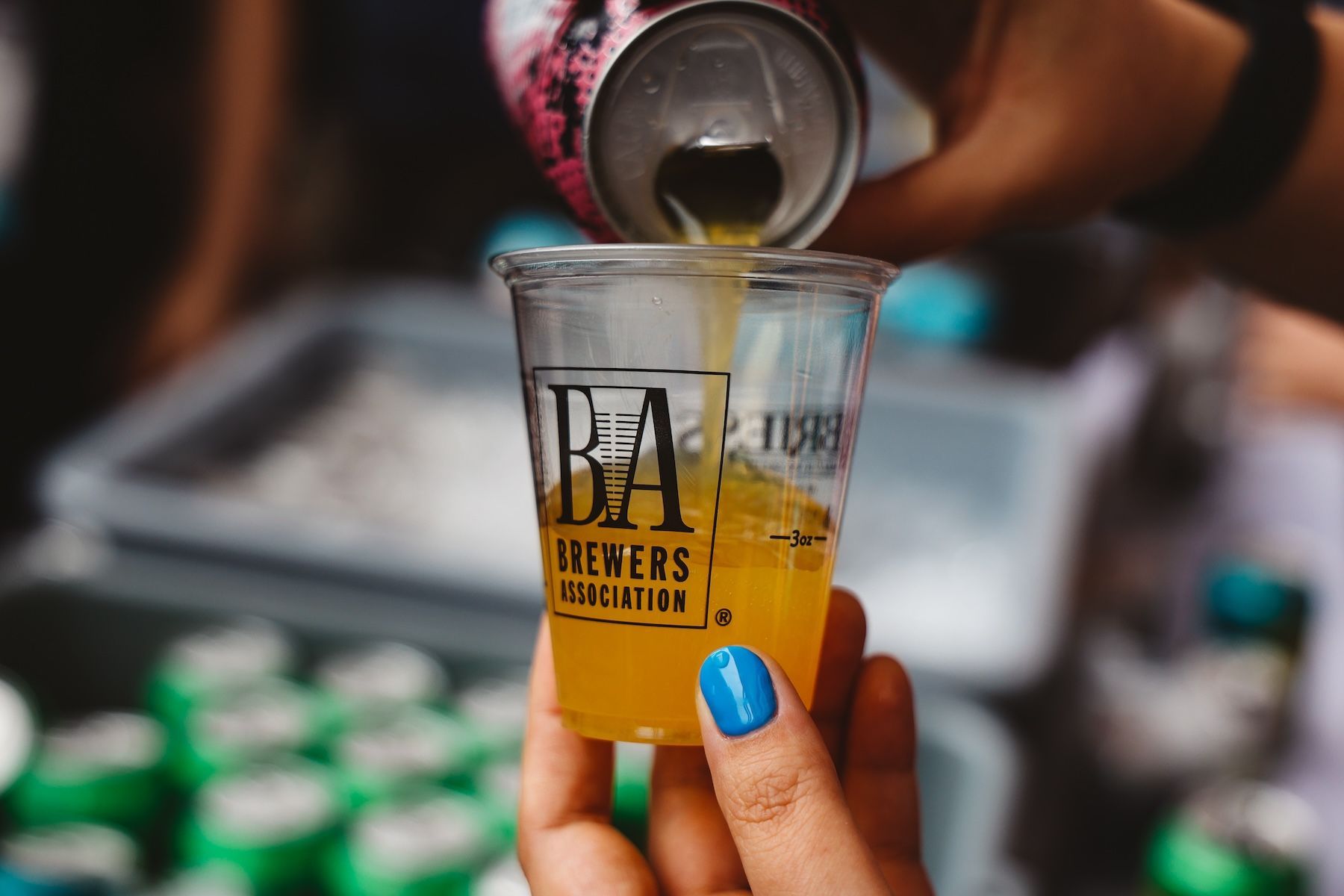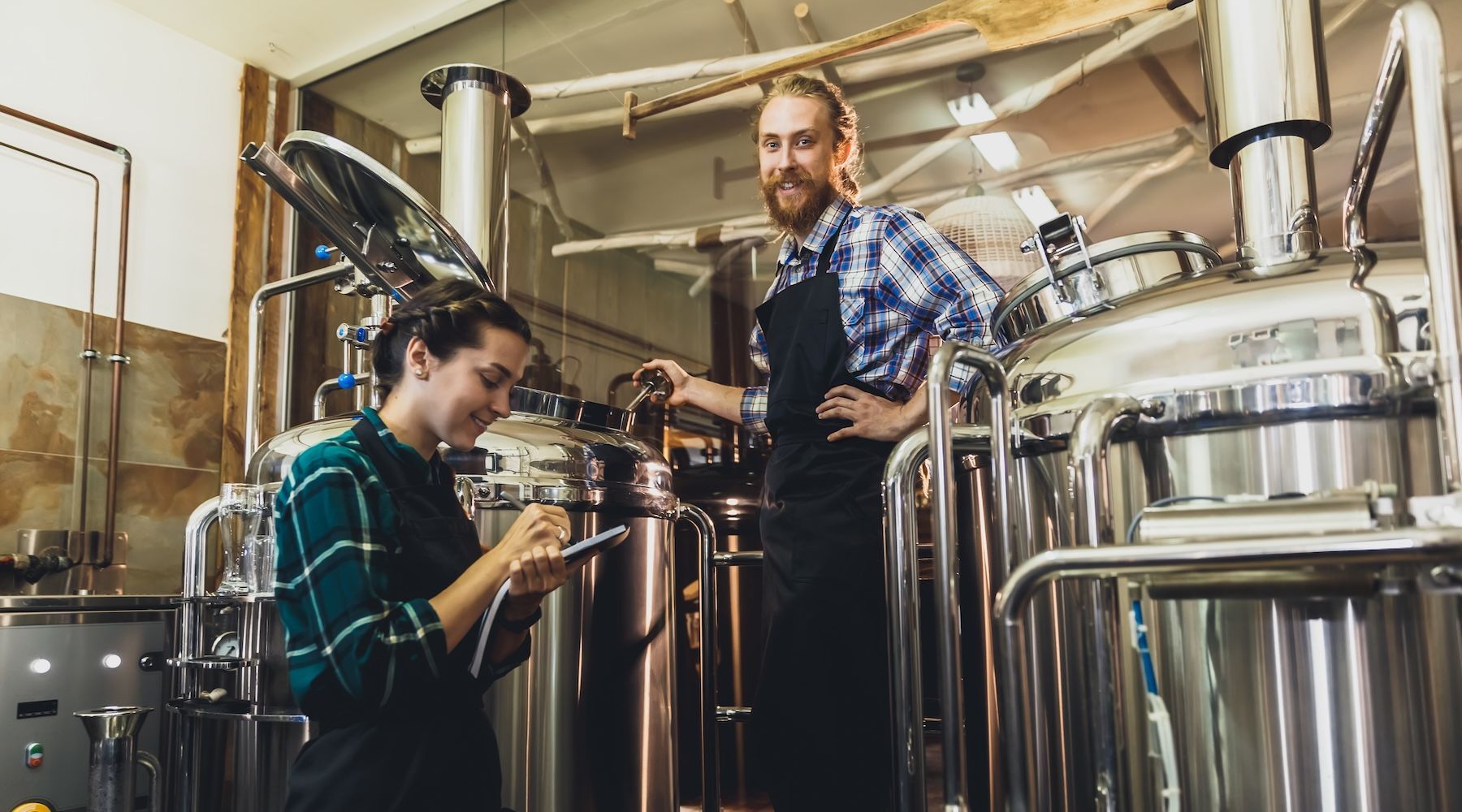Embarking on an ERP implementation journey is a significant undertaking for any organization. It's not about simply installing new software and processes. Without proper leadership support and guidance, ERP implementations can fail. If you’re considering new beverage manufacturing software, focus on achieving executive alignment. Executive alignment is crucial, and one of the most important factors in ensuring the success of your project.
Executive alignment is getting all key decision-makers in an organization on the same page about an ERP project. This includes understanding the business case for the project, the goals and objectives, the timeline and budget, and the risks and challenges. It also includes getting buy-in from all levels of the organization from the leadership team to the head of production to the warehouse manager.
The lack of executive alignment in ERP projects can result in leaders underestimating the magnitude of change, resulting in insufficient resources and a lack of prioritization. This can lead to a fragmented approach, delayed decision making and ineffective project governance. Additionally, without active involvement from your leadership team, employees may resist the changes, resulting in low adoption rates and utilization of the ERP software.
Without executive alignment, an ERP implementation can fail to provide expected benefits and cause problems, including:
- Confusion and frustration among employees
- Delays or oversight of crucial decisions
- Project scope creep, missed deadlines and budget overruns
- Resistance, decreased morale and increased turnover
- Low end-user adoption, decreased productivity and missed opportunities for process optimization
Reduce anxiety and empower your bev-alc business to achieve ERP implementation success by clearly communicating the purpose and benefits of the project, providing the necessary resources and support, and ensuring that everyone is on the same page.

How to Secure Executive Buy-in for ERP Implementation Success
ERP implementations can be challenging for organizations, with concerns ranging from high costs and project delays to internal resistance and doubts about the system's effectiveness. The key to overcoming these challenges lies in engaging leadership to guide, direct and mentor employees throughout the process. Some practical strategies to achieve executive buy-in include:
- Address concerns: Many bev-alc companies need more clarity about project timelines, budget constraints and the perceived value of the new beverage ERP system. Proactively address these concerns. Provide clear communication and data-driven insights on project timelines, cost estimates and the potential business improvements that can be achieved through the implementation.
- Build a compelling business case: Highlight how standardizing processes and streamlining operations will improve efficiency, cost savings, decision making and customer satisfaction. Demonstrate how the bev-alc ERP system aligns with the organization's strategic goals and contributes to long-term growth. It may help to identify obstacles preventing your company from running efficiently.
- Engage executives in the decision-making process: Involve executives in the decision-making process from the beginning. Seek their input and perspectives to ensure their concerns and expectations are heard and addressed. Fostering a sense of ownership and commitment among your leadership team increases the likelihood of their buy-in.
- Showcase successful case studies:
FOMO is real. Other bev-alc companies benefiting from successful ERP implementations can alleviate doubts and inspire confidence in the potential of beverage manufacturing software. Ask your software provider for success stories and case studies of other organizations in the industry that have achieved positive outcomes through ERP implementations. Highlight the benefits they have gained, such as increased productivity, streamlined operations, improved data visibility and enhanced decision making.
- Provide demonstrations and training:
Allow executives to experience firsthand how the new beverage manufacturing software can address their needs and pain points. This interactive approach lets them visualize the benefits and builds trust in the technology.
- Communicate the long-term vision: Executives should understand the strategic significance and value of the ERP system beyond the immediate implementation phase. Articulate how the system will facilitate growth, scalability and agility.
Before ERP Project Kickoff
Before the project kickoff, establish a dedicated ERP steering committee. The committee should comprise executives from various departments who can provide valuable insights, make strategic decisions and ensure that the ERP project aligns with the overall business strategy. Their involvement ensures that the project remains focused, well-coordinated and aligned with your business goals. Key areas the steering committee will address before kickoff include:
- Setting objectives and goals:
As owners of the organization's strategic vision, they should ensure the project aligns with the overall business strategy. By establishing clear objectives, executives provide a roadmap for the implementation and define what success looks like.
- Securing budget and resources:
Executives assess the financial implications of the project, allocate funds and ensure that the project has the necessary resources, including staffing, technology infrastructure and the right ERP implementation partner.
- Building the implementation team:
Executives ensure that the
right expertise is available to drive the implementation. They participate in selecting key project stakeholders, such as project managers, functional leads and SMEs (subject matter experts).
- Selecting an ERP implementation partner:
Their alignment ensures that the selected vendor meets the company’s needs, provides the necessary functionalities and offers a long-term partnership. They confirm that the contract terms are favorable, addressing critical aspects such as timelines, costs and support services.
- Creating a culture of change readiness: They communicate the need for the beverage ERP system, its benefits and the importance of embracing change. Executives foster an environment where stakeholders and employees are receptive to change, encouraging them to seek opportunities for improvement and innovation proactively.
Cross-functional collaboration on the steering committee facilitates communication and coordination among different departments. The insight provided by each member at this stage lays a solid foundation for a successful beverage ERP implementation.

During ERP Implementation
Once the project is underway, the leadership team operates as the guiding star of the project. You’ll want to inform executives of its progress and regularly solicit feedback. Their involvement allows for the early detection of potential issues, proactive risk management and the allocation of resources to address any challenges that may arise.
Effectively minimizing disruptions maximizes the chances of a successful implementation. This transparency helps build trust and reduces anxiety by keeping them well-informed throughout the implementation process.
Additionally, executives must continue to provide the necessary resources to support the ERP project. This includes financial and human resources via budget approvals, staffing decisions and securing the necessary infrastructure and technology. Even the best-laid ERP plans may fall short of expectations without the resources required.
Furthermore, you can anticipate significant changes to processes, roles and responsibilities with a beverage ERP implementation. Executives communicate the importance of the changes, address employee concerns and encourage a culture of adoption and continuous improvement.
Finally, employees are inclined to embrace the changes and support the implementation when executives actively champion the project, communicate its importance and lead by example. They help create a sense of urgency, foster trust and encourage employees to actively participate in training, adopt new processes and leverage the new beverage ERP software effectively.
Post-implementation ERP Support
The go-live phase of the project doesn’t mean the leadership team is off the hook. Executives are crucial in ensuring the widespread adoption of new software and processes. Ensuring long-term success requires ongoing involvement and support from leadership. They must continue to champion the project, drive adoption, address challenges and promote a culture of continuous improvement.
Executive behavior after implementation can help overcome resistance and foster a sense of ownership and enthusiasm among teams. Research consistently demonstrates that bev-alc companies with solid executive alignment have a higher chance of ERP implementation success. When leaders champion the project, guide their teams and embrace the transformation, employees are more likely to adopt the new software and processes.
Tailored Support for ERP Implementation Success
With a dedicated steering committee, transparent communication, resource allocation and collaboration, craft beverage companies can confidently navigate the transformative journey, achieving operational efficiency and gaining a competitive edge. Using our proprietary implementation methodology, we help beverage management overcome obstacles and unlock the full potential of their beverage manufacturing software from project kickoff to deployment and optimization.
Ensure executive alignment and lay the groundwork for a successful ERP implementation by speaking with Crafted ERP’s implementation and integration specialists today.
Contact us to schedule a time to chat. We will help you identify your needs, assess your readiness and develop a plan to ensure the success of your beverage ERP implementation.










GET IN TOUCH
1512 Larimer Street, Suite #150
Denver, CO 80202
United States
(720) 699-0200
66 Goulburn Street
Sydney, NSW, 2000
Australia
+61 2 9044 1330

